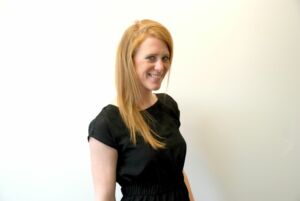Opinion
Dating the Danes | To believe or not to believe
This article is more than 11 years old.
Surely the perfect appertiser for Great Prayer Day

There are some first-times a Dane never forgets. Like the time they spontaneously went to a party without planning ahead. Or the time they ate a non-organic sausage. And then there’s the time they went to church.
The latter is very similar to the first two. For the majority of Danes, it feels good at Christmas and Easter but rather alien on most other days and, dare I say, somewhat irrelevant to their lives.
So where does this leave a foreigner like me who does adhere to a religion, trying to enter into deep and meaningful relationships with Danes who frankly think it’s just plain odd to believe in something?
Difficult subject to broach
Now the topic of religion isn’t brought up easily here. As one who’s fully aware that Danes do not enjoy discussing it, I usually wait until around date three before I even think of broaching the “So would you consider yourself a part of any religion” question.
This is commonly met with “Not much … why?” And then an expression of mild fear comes across their face as they become worried where the conversation may lead.
I’m sure I’m not the only foreigner to have come here and been met with expressions of surprise, curiosity and at times distaste, purely for not being an atheist or agnostic.
A certain hostility
I would never ask somebody to agree with my views, or tell them theirs are wrong, so why do some Danes feel the need to do the same to me?
If you’re dating in countries such as New Zealand, Australia or America, where perhaps religion/faith/spirituality is a far more integrated part of the culture, people are far more open and interested in what your views are. It’s just part of who you are.
One Dane even asked me recently: “Why is it important for you to even know that about me?” I found this very strange as I consider a topic like religion to highly shape how you view the world and your role in it.
More tolerant elsewhere
I also think that in New Zealand, most people have a baseline understanding of where you’re coming from if you consider yourself part of a religion. They may have a family member who’s Catholic, a friend who’s Buddhist and maybe even a neighbour who is getting into Scientology.
Most would agree that it’s people’s values that make a relationship last and I agree. You could be from opposite ends of the tracks regarding faith and still make it work.
However, there’s no escaping the fact that religion plays an important role in life for many people in this world.
So to all my future dates, don’t worry, I’m not about to drag you to the nearest church the next time we go out, but please don’t put a wall up against me because you don’t regard religion as a part of your life.
About










































